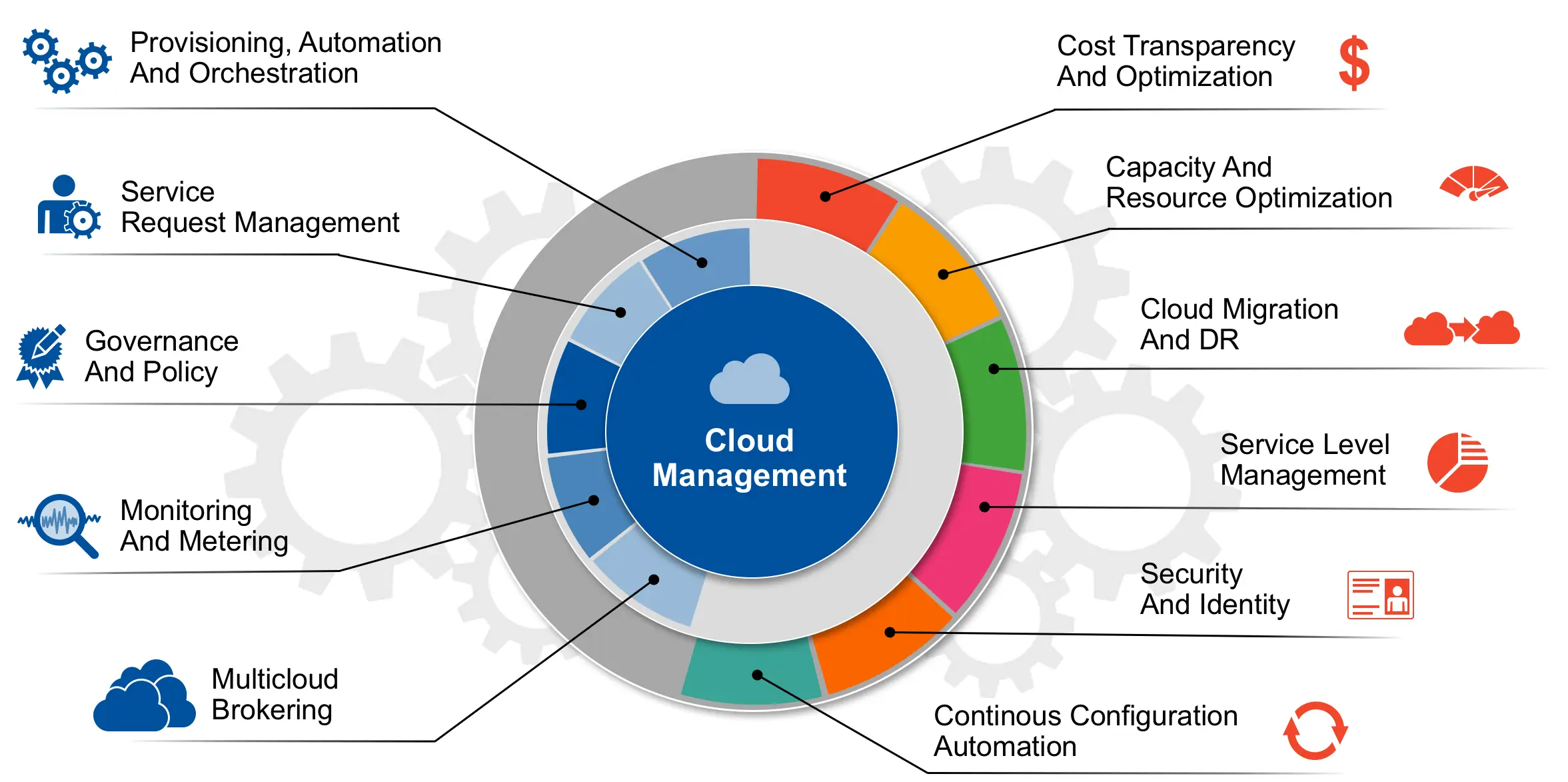Businesses may profit greatly from cloud infrastructure management, which can change their operations and provide them a competitive advantage in the digital age.
Businesses may increase scalability, save expenses, improve security, and simplify operations by using cloud infrastructure.
We’ll look at the seven main advantages of cloud infrastructure management in this post, along with how it may help companies of various kinds.
1. Financial Savings
The potential for large cost reductions is one of the main benefits of managing cloud infrastructure. Businesses may lower the amount of money they need to spend on costly gear, maintenance, and upgrades by shifting workloads to the cloud.
Pay as you go pricing methods are another feature of cloud infrastructure that let businesses only pay for the resources they really utilize.
Businesses may save a significant amount of money because to this flexibility, particularly those whose workloads are unpredictable.
2. Flexibility and Scalability
Businesses can meet their changing demands with unmatched scalability and flexibility thanks to cloud infrastructure management.
Without requiring a substantial upfront investment, cloud infrastructure enables enterprises to dynamically modify their capacity to handle unexpected surges in demand or scale down during slower times.
Businesses are better equipped to adapt to shifting consumer demands and market situations when they have this degree of flexibility.
3. Strengthened Defense
In the digital era, cloud infrastructure management provides strong security features that may help protect critical data and apps. Security is a major issue for enterprises.
Cloud providers make significant investments in identity and access management, encryption, and compliance certifications, among other security measures. Businesses may also reduce the risk of data loss or breaches brought on by on-premises technology failures by centralizing data on the cloud.
4. Enhanced Cooperation and Output
No matter where teams are physically located, cloud infrastructure management promotes increased productivity and collaboration.
Employees may access, share, and work together in real-time on documents and projects using cloud-based tools and apps. In addition to improving collaboration, this degree of connection helps firms run more smoothly and adjust to the growing popularity of remote work.
5. Business Continuity and Disaster Recovery
The capacity of cloud infrastructure management to improve business continuity and catastrophe recovery is another important advantage.
Strong backup and recovery options are provided by cloud providers, guaranteeing that companies can bounce back fast from unforeseen failures, data loss, or other disturbances. With this degree of resilience, downtime may be reduced and uninterrupted key operations can be guaranteed.
6. A stronger edge over competitors
Businesses may get a competitive edge via quicker time to market, more agility, and quicker innovation by using cloud infrastructure management.
Organizations can quickly create and implement new features and applications with the help of cloud-based resources and services, which helps them remain competitive and successfully adapt to changing client expectations.
7. Sustainability of the Environment
Managing cloud infrastructure may also help the environment by lowering energy use and maximizing resource utilization.
Through workload consolidation and the use of energy-efficient data centers, companies may reduce their carbon emissions and have a positive impact on a sustainable future.
Customers and stakeholders who care about the environment may find this dedication to sustainability appealing.
Conclusion
To sum up, cloud infrastructure management provides enterprises with a host of advantages, such as reduced costs, scalability, better security, higher productivity and collaboration, business continuity and disaster recovery, heightened competitive edge, and environmental sustainability. Organizations may revolutionize their operations, spur innovation, and get a competitive advantage in the current digital market by adopting cloud infrastructure.

